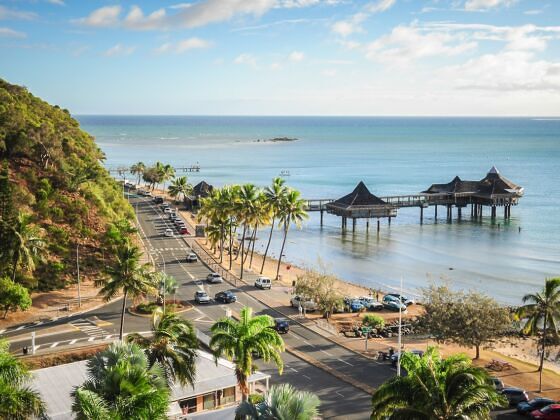New Caledonia is a cigar-shaped island in the South Pacific, a colony of France, with a population of about 250,000.
Half the people are descended from white French colonialists; the other half are black Melanesians, called kanaks, descended from Papua New Guinea.
